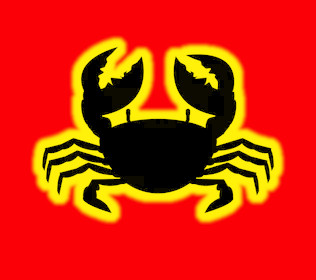The most obvious is the 1986 Chernobyl event for me.
1953 - The Corn man doesn't win the power struggle in the CPSU after Stalin dies.
1956 - The Corn man does not attempt any kind of "de-Stalinization" but doesn't really change much about his policies.
1960 - The ANPO protests in Japan escalate, as Kishi's plan to use fascist forces to crack down on them doesn't get blocked or some other circumstance.
1963 - Kennedy doesn't die
1965 - Malcolm X escapes the assassination attempt.
1968 - The events of May 1968 escalate into a revolution for whatever reason (backing from the PCF, DeGaulle doesn't call for early elections, etc. and either a radlib state is created in Western Europe or NATO intervenes just like the Warsaw Pact did in Hungary 1956 or Czechoslovakia that year. Martin Luther King survives the assassination attempt.
1969 - the Neo-Nazi NPD passes the 5% electoral thresshold in the West German elections. Brezhnev dies in an assassination attempt that was prevented IRL.
1970 - The fash coup plot in Italy, the Golpe Borghese, is attempted or possibly succeeds.
1973 - The US escalate the war in Vietnam yet again, turning it to a forever war. Allende finds out about and prevents Pinochet's coup.
1974 - The Left wins the power struggle in post-revolutionary Portugal, creating a socialist state in western Europe, likely influencing the developments in Spain, where Franco was not long for the world. The Turkish invasion of Cyprus escalates into a war between Greece and Turkey - both military dictatorships, and both in NATO. Nixon stubbornly refuses to resign.
1975 - Thatcher loses the Conservative Party leadership election and the rise of the neoliberals is at least delayed.
1976 - A different faction wins the power struggle following Mao's death.
1977 - Ethiopia gets defeated by Somalia in the Ogaden War.
1978 - A different faction wins the power struggle in the Iranian revolution. The Sino-Vietnamese war starts early with China rushing to defend its ally... the Khmer Rouge. A different cardinal is chosen to replace John Paul I, lessening the influence of the Catholic Church in Poland.
1980 - Reagan loses the US Presidential Election to Carter or another lib. The USSR decides against intervening in Afghanistan.
1981 - The USSR marches in to suppress the "Solidarity" campaign in Poland, much like in 1956 or 1968, but likely facing way more resistance.
1982 - The Falklands War doesn't escalate, and Thatcher doesn't get the boost in popularity from nationalism from that.
1983 - The diplomatic incident of the Rangoon bombing escalates to a second Korean War.
1984 - Andropov is succeeded by someone else.
1985 - Gorbachev doesn't get the job.
1986 - Olof Palme survives. No Chernobyl Disaster.
1991 - The August Coup in the USSR succeeds.
No Chernobyl Disaster.
great list, but I'm actually going in the opposite direction on this one.
A more severe one? Alright, it's your scenario - I just listed some possible divergence points.
I think the worst case scenario for Chernobyl was that Eastern Europe would become uninhabitable. I'm not changing the Chernobyl exclusion zone's size though, instead the Chernobyl disaster will be caused by alien infiltrators for the purpose of conjuring a colossal alien demon thing. In my story the USSR is basically the last country on earth that's not secretly controlled by aliens.
That's why the Pentagon is the shape it is, and why it's so big. It's imprisoning a super-demon underneath it. 9/11 was an attempt to break the seal and release the demon.
Some argue this is exactly what happened.
Ah, what nerds on the old alternatehistory.com forum used to refer to as ASB (Alien Space-Bats), i.e. something so improbable that it required the intervention of something like the creatures mentioned before.
Don't worry about that, my book is overflowing with far less probable happenings.
Dipping back into the 40s but only because I think it's really interesting—What if Henry A. Wallace had stayed FDR's vice president in 1945 instead of Truman? Dem party elites conspired in Truman's favor at the convention as Wallace was considered too far left and too friendly towards the USSR.
The Truman Doctrine and other foundations of the cold war and US Anti-communism evaporate. Would there even be a cold war? Probably, but a minimum of 4 more years of non-adversarial relations with the USSR might have set things on a better track.
Also, Japan almost certainly doesn't get nuked which is nice.
The JFK assassination was pretty big. It wasn't contemporary knowledge but Nixon ratfucking the Vietnam negotiations to get elected is definitely a big event for the history books.
In the 80s we had the Iran Contra affair and arming both sides in the Iran-Iraq war. Fucking Reagan....
Massive electoral fraud in Illinois and Texas is what got JFK into the presidency and Nixon out. Nixon didn't make a stink because he thought he'd have another shot. Imagine Nixon in charge during October Crisis.
Critical support for Richard Daley for delaying human extinction
I'm going to need a little more hand-holding on what to do with that, I'm very unfamiliar with the general region.
Basically East Pakistan ( now Bangladesh ) wanted independence from Pakistan. Which led to the Pakistani military committing genocide with deaths estimated from 300k - 3 million
Eventually war breaks out with a Pakistani preemptive strike on Indian airfields. The war lasts around two weeks with an Indian/Bangladeshi victory. Around 8-10 million refugees went to India.
The US supported Pakistan and did not want India to intervene. Mainly because India had good relations with the USSR I suppose. The USSR supported India and Bangladeshi Independence and would support India against the US and China
So during the war the US sends in a carrier group to the Indian Ocean to send a message, which was countered by the USSR sending their navy. Nixon tried to get China to send troops to the Indian border but they did not agree. China had defeated India recently in the 1962 and supported Pakistan.
So there are many ways things could've gone differently. What if China and the US did enter the war, or just one of them? What if the the USSR was neutral here? I want to read a lot more about this time period
How were Pakistan and Bangladesh ever able to be one country with the large distance between them?
The Partition Of India did not exactly set the region up for success
The Partition was badly executed by the British but it happened mainly because of the political party the Muslim League
Dr. King and Malcom X surviving their respective assassinations. I am also curious how black America would be different if they weren’t slain.
I think that the biggest shake-up that comes to mind for me would be the French and US going through the proposed plan to use atomic bombs against the Vietnamese at Dien Bien Phu. The use of atomic weapons in this colonial context would lead to global shifts in culture and politics.
this is good but I'm probably going to reserve my first post-WWII nuking for Washington DC.
The USSR goes ahead with its invasion of China in 1968? 69? From what I heard it was a very close thing. And the only objective would have been regime change in Beijing.
if both Turing and Allende managed to not get murdered we'd have cybersocialist human instrumentality sorted by the late 80s
Allende's computer science utilisation in Chille was very interesting but it was more a radical reorganisation of bureacracy to make best use out of computers for organisation than redefining humanity
I think the big one is the development of nuclear weapons and advanced rockets by multiple competing powers. Up until that, going to war with another great power meant traditional military mobilization. After that, any country with nuclear-armed ICBMs became effectively immune to traditional military attacks.
An alternative history where the only nuclear weapons were plane-delivered fission bombs by the three countries involved in the Manhattan Project (US, UK and Canada) would have turned out extremely differently.
I still hold that the Cuban Missile Crisis was a disaster because
 didn't immediately fire all of them at Miami
didn't immediately fire all of them at Miami
In Sailing Close to the Wind, Dennis Skinner (I know, cringe socdem but he was there when it happened) mentions how he felt that the miner's strike had been building towards a general strike and then a revolution.
Margret Thatcher did a lot of evil shit to make sure the other unions didn't follow the NUM into strike and considering the other leftist movements of the time, if she'd failed it could've been the start of a larger communist movement in Britain.
The Cuban Revolution. The martyrdom of Che, that one Soviet submarine commander that chose to not hit the nuke button, Reagan and Thatcher surviving assassination attempts, Yuri Andropov dying too early, Gorbachev becoming the leader of the Soviet Union, the ultra-Left gang of 4 lost the rightists in the PRC and were subsequently purged, the Red Scare 2 happened and drove CPUSA underground, Korean War, Vietnam War, Afghanistan War, the Israel wars, the decolonization movements across Africa, Khrushchev and Zhukov usurping the central committee of the CPSU after the death of Stalin, etc.
Without Vasily Arkhipov saying "no", we don't have any advanced human civilization to speak of.
There is no way the second red scare does not happen in some form with the CPUSA voluntarily declawing during WWII. The capitalist state was going to liquidate it no matter what and the only unique thing about McCarthy was the style of theater he employed.
Disagreed, the name change from CPUSA to CPA - which one can concider a form of liquidation in the sense that the Leninist party of a new type model was abandoned in favor of moving towards becoming a more mainstream party in a precurser to the eurocommunist parties of europe - stems from Browder's blunder in assuming FDR wouldn't suddenly croak in office during the time Henry Wallace got replaced with a rattlesnake southern Democrat who would lead the crusade to liquidate the American u.s-soviet coexistence wing of government alongside the Reds in the purge.
The old party during the Browderite dissolution, and I would argue even when during the greatest heights of the Red Scare 2 was a materially a stronger party than the current CPUSA which suffered a true liquidation in the early 2000s at the hands of the Webbite social fascists that wormed their way into power.
What if Gus Hall is reanimated in a pet semetary kind of scenario? Reanimated and violent.
So actually, I just let Stalin die. I think I'll world-build in an explanation that'll make sense naturally in the context of everything else going on, but fundamentally change nothing. The actual change I'm putting in related to Stalin is that the Soviet-sino split actually goes in the opposite direction and the USSR undergoes Restalinisation shortly after the Soviet-sino split. My actual narration is set in the 1980s.
If I recall after Khrushchev there were a few movements to restore Stalin's legacy all the way up to Andropov.
Here's some reading on it
https://twitter.com/After__History/status/1657177824933847041
1958 — The fascist coup attempt in France is successful, delaying decolonisation and creating instability in the western bloc.
1965 — The Communist Party of Indonesia is more militant and able to prevent being massacred.
Early 1990's — Negotiations to end apartheid in South Africa in return for the ANC abandoning political radicalism collapses, sending the country into civil war.
The fascist coup attempt in France is successful, delaying decolonisation
There are good arguments to be made that this would booster Decolonization.
There were attempts to do it, like the currency union and later on the passport union so it doesn't seem like a far-fetched idea. Maybe if the formation of the EU was delayed a kind of Nordic alternative could be possible. If we then assume that Norway, Iceland and Denmark somehow followed Sweden's example and stayed neutral after the war instead of joining NATO, a Nordic Union could be a political bloc as well and possibly weaken American influence in Europe during the cold war.
I think the biggest and least talked about is the mass adoption of washing machines. The sudden drop in the amount of domestic labor needed in society really helped the feminist movement











